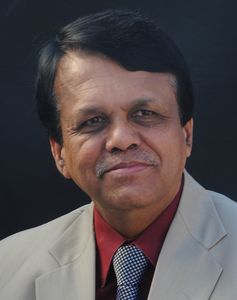Dear Doctor/ Dr P. Satish Chandra, adviser and senior consultant, neurology,
Apollo Hospitals, Jayanagar, Bengaluru
Covid-19 can affect the brain. The potential neurological complications of Covid-19 include stroke, delirium, brain inflammations and peripheral nerve damage. During the pandemic, neurological complications have been a great concern for people with non-Covid health problems as well.
Stroke point
Strokes are preventable to a great extent. Almost 60 per cent of strokes are caused by hypertension, diabetes and high cholesterol. Heart disease, and consumption of tobacco and alcohol can also raise its risk. Once you are over 40, keep track of your blood pressure, sugar and cholesterol levels, and maintain a healthy lifestyle.
Do not miss your health check-ups. Digital devices can be used for monitoring vital signs regularly. One can avail telemedicine consultations, too.
Stroke is acute at the onset. Do not ignore stroke symptoms like facial deviation, weakness in one of the limbs, alteration in speech, vision problems and imbalance while walking. If the patient is brought to the hospital in the golden hour (within three hours of the onset of stroke), blood supply to the affected region could be restored before cell death occurs. If the stroke is caused by thrombosis, medications can help dissolve the clot.
Managing short circuits
Epilepsy is the commonest neurological disorder after headache. One per cent of the general population will have epilepsy at some point in their lives.
Food contaminated with tapeworm eggs or larvae is a major cause of acquired epilepsy. Do not eat unwashed fruits, vegetables and greens or undercooked pork. Low levels of sodium and calcium can also raise one’s risk of epilepsy.
People with uncontrolled or refractory epilepsy require proper neurological evaluation. The rest can be managed with telemedicine. Recording the seizure on phone can help the doctor make the right diagnosis. Epilepsy is eminently treatable. Anticonvulsants for epilepsy may have to be continued for at least two to three years.
Forget me not
Dementia is essentially a disease of ageing. Ageing cannot be prevented, but factors that lead to rapid ageing such as diabetes, hypertension and dyslipidemia could be kept in control.
Have a balanced diet. Low intake of calcium and Vitamin D may increase the risk of dementia. Stroke and head injury patients and those with thyroid and endocrinal problems could also develop dementia. Most dementias are treatable. Some are preventable. Be aware of the early signs and do not hesitate to seek help.
Tackling tremors
Slowness in movement and thinking, tremor in hands and poor balance and coordination are some of the common symptoms of Parkinson’s Disease.
During the pandemic, people with Parkinson’s can opt for virtual consultations. Exercise and physical activity are key to managing the disease.
—As told to Mini P. Thomas



